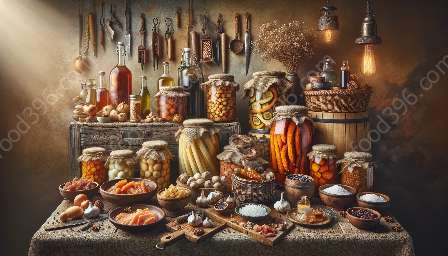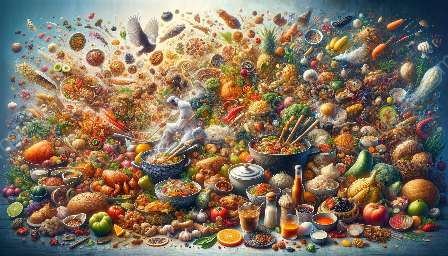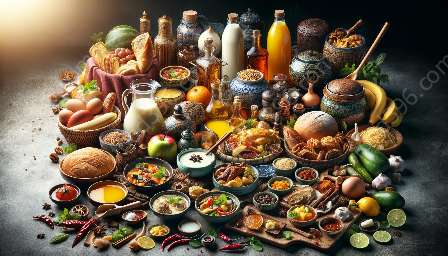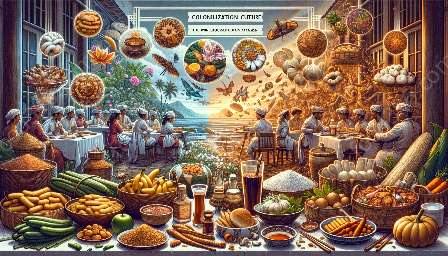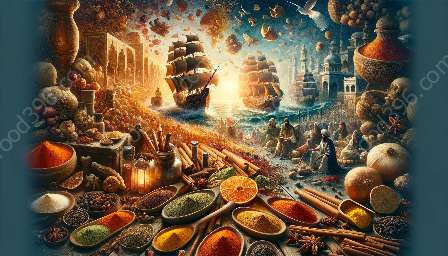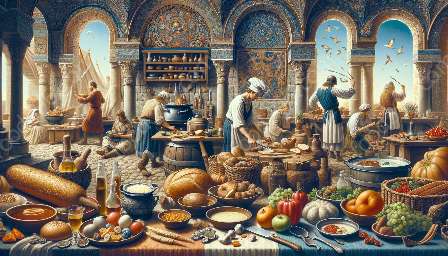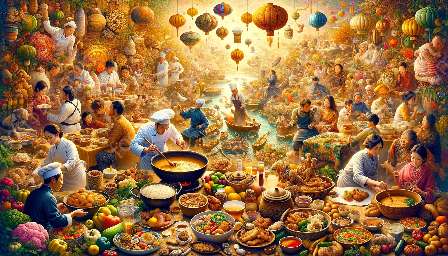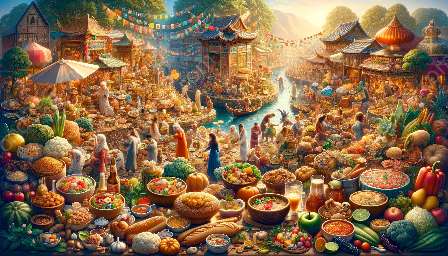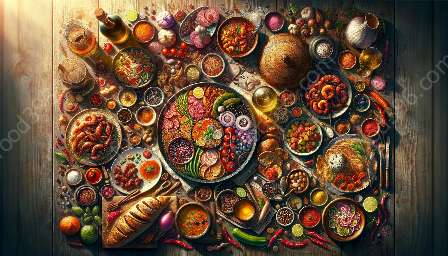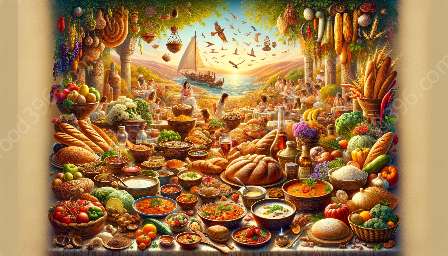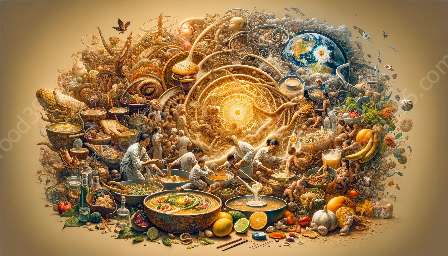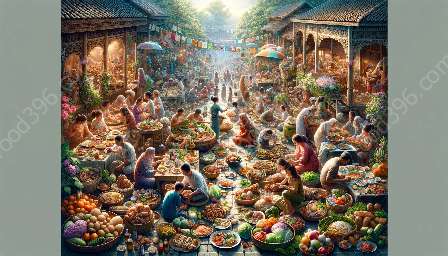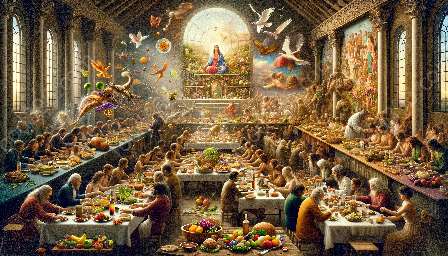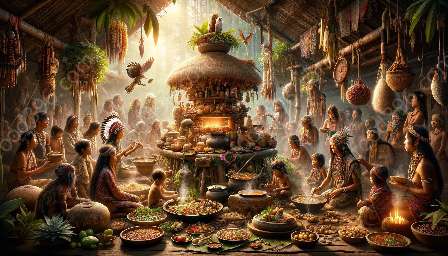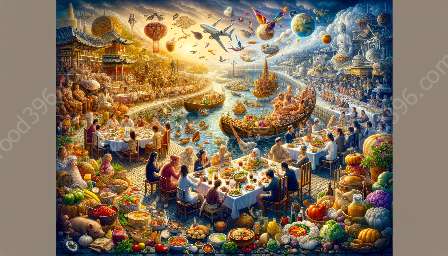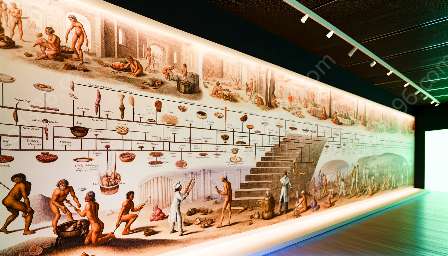Food and globalization are interconnected in a myriad of ways, influencing food culture, history, and the overall experience of food and drink. Globalization has significantly transformed the way we produce, distribute, and consume food, leading to a complex web of interconnected food cultures and histories.
With the advancement of technology, transportation, and communication, the world has become more interconnected than ever before. This interconnectedness has had a profound impact on food, leading to a global exchange of culinary knowledge, ingredients, and cooking techniques. As a result, the food we consume today reflects a fusion of diverse culinary traditions, creating a rich tapestry of flavors, textures, and aromas.
The Impact on Food Culture
Globalization has reshaped food cultures across the world, leading to the integration and adaptation of various culinary practices. As people migrate and travel, they bring their culinary traditions with them, contributing to the diversity of local food scenes. This cross-pollination of food traditions has given rise to fusion cuisines and innovative culinary creations that celebrate diversity.
Furthermore, the global food market has made it possible for people to access a wide range of international ingredients and products, allowing for the incorporation of new flavors and textures into traditional dishes. This has not only diversified the local culinary landscape but also provided opportunities for culinary experimentation and creativity.
- Cultural Exchange: Globalization has facilitated cultural exchange through food, as people embrace and adapt to new culinary influences, leading to the evolution of food culture.
- Culinary Diversity: The interconnectedness of the world has led to a melting pot of culinary traditions, contributing to the diversity of food cultures in various regions.
- Accessibility: Access to international ingredients and products has expanded, allowing individuals to explore and incorporate new flavors into their cooking.
The Historical Perspective
Globalization has also left an indelible mark on the historical narrative of food. The exchange of culinary traditions, ingredients, and cooking techniques has shaped the historical development of food, providing insights into the interconnectedness of civilizations throughout history.
Historical trade routes, such as the Silk Road and Spice Trade, played a pivotal role in the global spread of culinary ingredients and goods, leading to the amalgamation of diverse food cultures. These historical interactions have laid the foundation for the interconnected food world we live in today.
The migration of people and the exchange of culinary knowledge have also influenced the historical development of food, as culinary traditions have crossed geographical boundaries, leaving a lasting impact on the culinary heritage of different regions.
- Historical Trade Routes: The historical exchange of goods and ingredients through trade routes has influenced the culinary practices and traditions of various regions.
- Cross-Cultural Influences: The migration of people has facilitated the exchange of culinary knowledge, leading to the integration of diverse food traditions into local cuisines.
- Global Culinary Heritage: The historical interactions between civilizations have contributed to the rich and diverse culinary heritage that we cherish today.
Interconnection with Food and Drink
The globalization of food has intricately woven together the realms of food and drink, creating synergies that enhance the overall gastronomic experience. Whether it's the pairing of food with wine, the infusion of global flavors into traditional beverages, or the emergence of international culinary trends, the interconnection with food and drink is undeniable.
As global cuisines continue to influence local food scenes, a similar impact can be observed in the realm of drinks. The globalization of beverages, such as coffee, tea, and spirits, has resulted in the adoption of diverse drinking rituals and preferences, enriching the tapestry of global beverage culture.
- Culinary Pairing: The globalization of food has led to the exploration of innovative culinary pairings with various beverages, enhancing the overall gastronomic experience.
- International Beverage Influence: Globalization has influenced the consumption and production of beverages, leading to the integration of diverse drinking traditions and preferences.
- Global Culinary Trends: The interconnected food world has given rise to global culinary trends that resonate with both food and drink, shaping contemporary gastronomic experiences.
In conclusion, the impact of globalization on food culture and history is profound and far-reaching. It has transformed the way we perceive, prepare, and savor food, leading to a dynamic and interconnected culinary landscape. As the world continues to evolve, the fusion of global culinary influences and traditions will continue to shape the future of food and drink, celebrating the diversity and interconnectedness of our gastronomic world.



